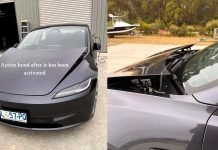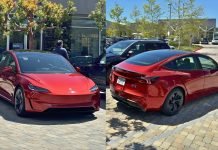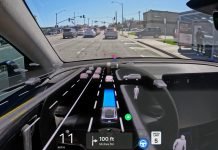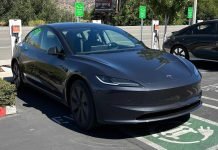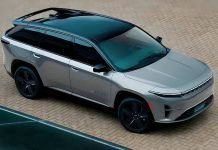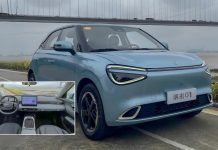The pattern of expectations from electric vehicles has shifted quite a bit in the past few years. Back in 2008, when Tesla launched the Roadster, it was an electric sports car with one goal in mind – take on the combustion sports cars. Nissan Leaf and Chevrolet Bolt have been around for a long time now, and even though they are in the ‘affordable car’ category, the specs fail to impress. Now, most of the new electric vehicles coming to the market are at the higher end of the price spectrum. Companies try to justify the high prices by providing good performance specs, but more often than not, it is difficult to match the specs-to-price ratio of combustion vehicles.
But things could change if Tesla does manage to keep one of the promises it made on Battery Day last September. While talking about their new battery, Musk mentioned that the reduced battery costs would allow the company to manufacture a $25,000 electric vehicle (dubbed as ‘Model 2’). There hasn’t been a production electric vehicle that costs this low until now. So, it won’t come as a surprise if this vehicle manages to topple a major part of the combustion vehicle market, when, and if, it arrives.
Battery Manufacturing
In general, the manufacturing cost of electric vehicles is high because of high battery production costs. But this trend is changing, for sure. For example, in 2010, the cost of lithium-ion cell production was $1100 per kWh. Last year on Battery Day, Tesla said that their current battery production cost is $156 per kWh. When Tesla announced the new 4680 cylindrical cells, they said the structural changes in this battery would reduce manufacturing costs by 14% per kWh. A few calculations give you the predicted cost of future Tesla batteries to be around $134 per kWh.
This decreasing trend in battery manufacturing costs has affected the prices of vehicles too. Both of Tesla’s recent cars were introduced at higher prices, but Tesla has progressively decreased the prices over the past two years. In general, the average cost of electric vehicles sold in the USA went down from $64,300 in 2018 to $55,600 in 2019.
Range Expectations from Model 2 and its Implications on Price
Now let’s talk about the mileage of electric vehicles, i.e., miles per kWh. Elon Musk once mentioned that a range of 250 miles (402.5 km) is too low for a production vehicle. So 300 miles (483 km) can be a benchmark. Tesla mentioned that the 4860 battery cells will provide 16% more range than the current crop. The cheapest Tesla car on the market currently is the Model 3 Standard Range, which provides 263 miles with a 50 kWh battery pack and older cells. So a battery pack with new 4680 cells and equal capacity, the range should go past 300 miles.
Hence, it makes sense to predict that Tesla will go with a 50-kWh battery pack for Model 2. At $134 per kWh, this puts the battery cost at around $7,000. Typically, Tesla batteries cost between $10,000 to $12,000. But for Model 2, they are aiming for a $6,000 battery pack. This would require battery production costs to go down to $120 per kWh. While the prices can go down to that figure, it is bound to take some time, which means Tesla may have to either delay the Model 2 or decrease its range initially.
Possible Specs
While Tesla is aiming to crack the affordability question, it doesn’t mean that they would want the Model 2 to be slow. In all likelihood, it will be able to accelerate from 0 to 60 mph (96.5 kph) in under 6 seconds. And with Musk shunning the possibility of a 250-mile range, we can expect a 300-mile figure as well. Of course, with timeline and cost permitting.
Also, Tesla isn’t really one of the companies that produce different hardware for different variants. The hardware will all be the same across variants, and the performance will be locked using Tesla’s software. And once they have the technology to upgrade the specs, they will simply rearrange the ‘locks’ on the software, thus offering better range and performance over time. Thus, even if the initial release of Model 2 isn’t as impressive as other Tesla vehicles owing to cost, you can expect it to improve.
That said, a 250-300 mile (402-483 km) range and acceleration under 6 seconds are enough to blow away the combustion vehicles in that price range.
Taking On The Combustion Vehicles Competition
With no electric vehicles currently offered at $25,000, the only competition we can look at is combustion and hybrid vehicles. Currently, there are vehicles like Volkswagen Golf ($23,000) and Toyota Prius ($24,000), and quite frankly, they wouldn’t stand much of a chance against the expected specs of the Model 2. Add to that a possible $7,000 tax credit, and the price just gets really, really competitive against the combustion vehicles.
And while electric vehicle prices are dropping in the USA, combustion vehicles prices are soaring. The average price of combustion vehicles purchased in 2020 was $37,786. That’s unexpectedly high. With combustion vehicles increasing and electric vehicles getting cheaper, it makes sense for the prospective $20,000-vehicle customers to invest a little more into electric mobility. They’ll most probably get a better vehicle, which is also better for the environment.
Possible Timeline
Musk mentioned on Battery Day last September that they are looking at a three-year timeline for this new car. There were reports that the vehicle may enter the market earlier than that. And along with those reports, there were also some discussions regarding the price of the vehicle. Most probably, the top-end variant will not go as high as it does in other Tesla vehicles. This would, of course, mean that the top-end variant won’t be a high-performance beast either. So, it could be an affordable Tesla that won’t be as expensive. This will definitely attract middle-class customers. Not everyone wants a vehicle with racecar-like acceleration, but anyone would like an affordable car.
A 2022 timeline seems quite optimistic though. And if battery manufacturing costs don’t come down sufficiently, Tesla will be stuck in a dilemma. They can either wait one more year to bring down the cost, or stick to the cost and timeline, and let the specs be less exciting.
Say what you will, a $25,000 Tesla vehicle with Level 2 autonomous capabilities, 300 miles of range and good acceleration figures is sure to make waves in the market. For all we know, it will spell doom on the $25,000 combustion vehicle market.

